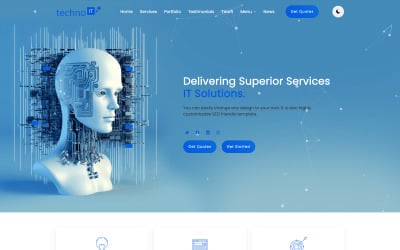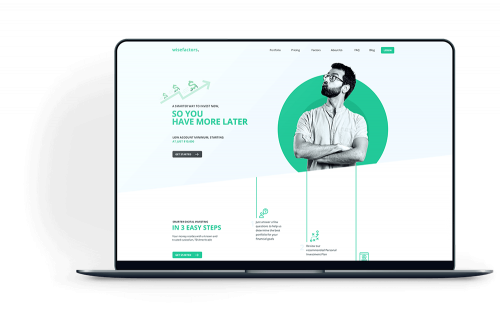Increase Involvement With Innovative Website Design Solutions
An attentively crafted individual experience, underpinned by strategic aesthetic style and interactive elements, can substantially enhance user interaction. By checking out different approaches such as responsive design and tailored web content, businesses can develop a system that not just mesmerizes users however also promotes long-term loyalty.
Understanding Individual Experience
Understanding individual experience (UX) is vital for creating efficient website style remedies, as it directly affects just how individuals communicate with electronic platforms. A detailed UX technique incorporates numerous aspects, consisting of individual, use, and availability contentment, all of which contribute to the general efficiency of a website.
To begin with, functionality concentrates on exactly how quickly customers can browse and locate the details they look for. website design copyright. A well-structured format, instinctive navigating, and clear contact us to action are fundamental components that enhance usability. Ease of access guarantees that all individuals, including those with impairments, can efficiently engage with the web site. This includes developing material that is compliant with ease of access standards and can be easily accessed using assistive modern technologies.
Moreover, comprehending user personas is essential for customizing the experience to satisfy specific target market requirements. By conducting customer research study and testing, developers can collect understandings that inform style decisions, ensuring the site not just satisfies aesthetic objectives but additionally satisfies useful demands. Ultimately, a thoughtful technique to UX design promotes engagement, urges retention, and enhances general user satisfaction, which are crucial for the success of any digital system.
Visual Design Approaches
Integrating reliable visual style approaches is vital for capturing individual focus and enhancing the general customer experience on a website. A well-balanced aesthetic pecking order overviews customers through the material, permitting them to easily browse and soak up details. This can be achieved with the critical use of typography, color pattern, and spacing, which collectively produce a natural and interesting design.
Color plays a pivotal function in developing and evoking emotions brand identification. Making use of a well balanced color combination that aligns with the brand's values can promote knowledge and count on. Additionally, integrating top notch photos and graphics improves visual charm and can dramatically boost customer involvement.
Whitespace, frequently overlooked, is just as important as it allows web content to take a breath and protects against frustrating customers with mess. It promotes less complicated analysis and comprehension, resulting in a more pleasurable browsing experience.

Interactive Elements for Interaction

One key facet of interactive layout is customization. Customizing experiences based upon customer habits and preferences can dramatically boost involvement. For circumstances, tailored material suggestions or dynamic interface that adapt to individual selections develop a feeling of ownership and relevance, encouraging customers to check out even more.
Gamification is one more effective strategy. Including game-like aspects, such as achievements or incentives for finishing tasks, can change mundane communications into pleasurable experiences. This approach not only increases interaction however likewise encourages individuals to return, creating a dedicated audience.
Moreover, interactive aspects can facilitate social sharing, intensifying a site's reach. Attributes like remark areas, share switches, and user-generated web content areas foster area interaction, transforming visitors into energetic participants (website design copyright). Eventually, the strategic use interactive elements is necessary for creating a engaging and interesting website Read More Here that resonates with customers
Responsive and Adaptive Style
A well-designed web site must focus on flexible and receptive design to make sure optimum user experiences across a range of tools and screen sizes. Responsive layout employs fluid grids and versatile pictures, permitting the layout to automatically change based on the customer's display size. This method makes sure that customers can easily navigate and engage with the material, no matter whether they are making use of a tablet computer, smart device, or desktop .
In contrast, flexible style uses predefined designs that are tailored to certain tool groups. This suggests that the web site detects the kind of gadget being utilized and serves the appropriate format, which can boost packing times and enhance the display of vital aspects. While both methods you can find out more aim to boost use, receptive style is usually preferred for its fluidness and smooth shift between devices.
Integrating adaptive and receptive layout not only improves user contentment but also positively impacts search engine rankings. Internet search engine focus on mobile-friendly websites, thus raising exposure and attracting even more visitors. Therefore, spending in these design methods is vital for companies aiming to engage their target market efficiently and keep an one-upmanship in today's digital landscape.
Studying User Comments and Information

Examining metrics such as bounce prices, time on page, and click-through prices offers a quantitative viewpoint on user involvement. These metrics help designers determine which content resonates and which locations might require optimization. Moreover, A/B testing can be utilized to review variations in layout, allowing designers to make enlightened decisions based on user interactions.
Including customer responses not only enhances site functionality yet additionally fosters a sense of community and count on. Engaging with individuals with comments loops grows commitment and urges repeat check outs. Eventually, leveraging customer responses and information evaluation is important to creating a vibrant, user-centered web site that adapts have a peek at this site to advancing customer demands and preferences, therefore driving higher engagement and contentment.
Verdict
In final thought, innovative site layout services substantially boost individual involvement by prioritizing individual experience, using effective visual methods, and incorporating interactive elements. The application of receptive and adaptive layout ensures availability throughout various devices, additionally cultivating user interaction.
A thoughtfully crafted individual experience, underpinned by critical visual style and interactive elements, can dramatically boost individual interaction.Incorporating effective aesthetic layout strategies is necessary for recording customer attention and enhancing the overall customer experience on a web site.Customer responses and information evaluation are crucial parts of effective website design, as they provide important insights into user behavior and preferences. Ultimately, leveraging user responses and information evaluation is important to producing a vibrant, user-centered site that adapts to developing user needs and choices, therefore driving greater interaction and fulfillment.
In final thought, ingenious site design solutions significantly boost individual interaction by prioritizing individual experience, employing reliable aesthetic strategies, and incorporating interactive elements.